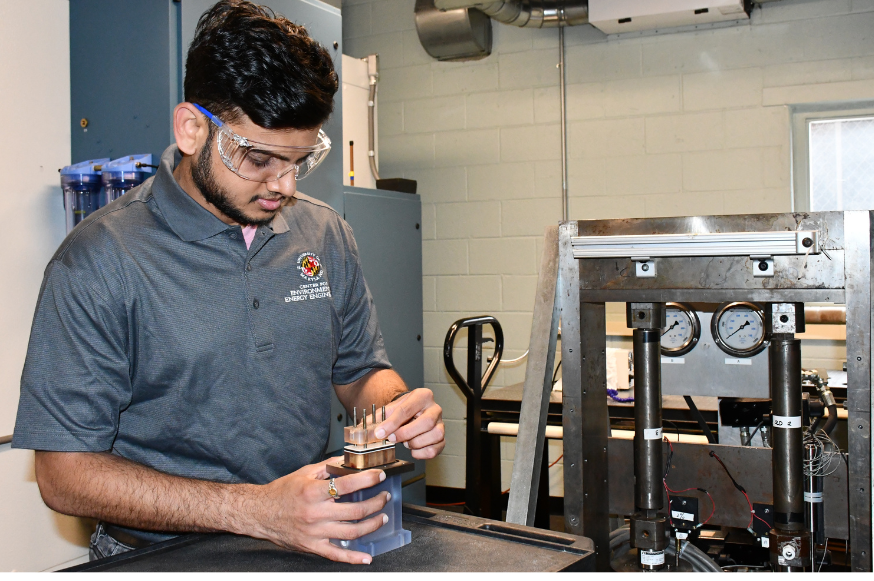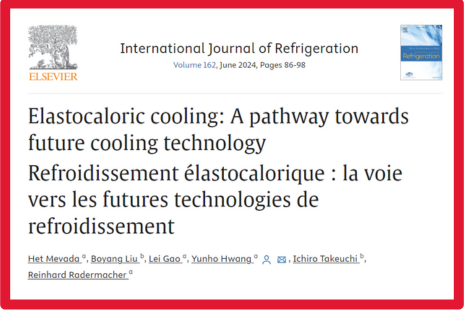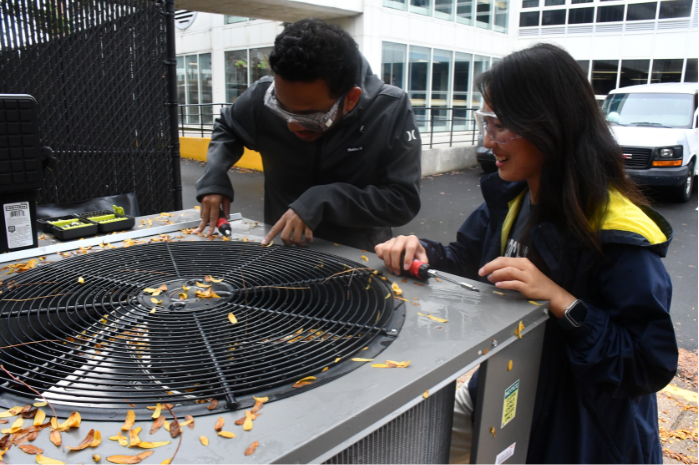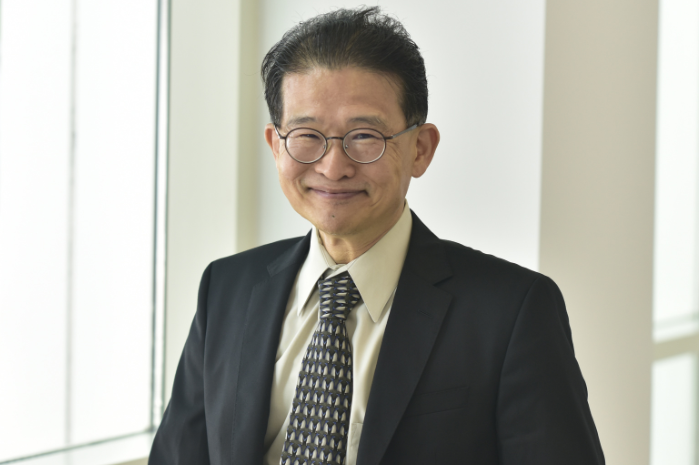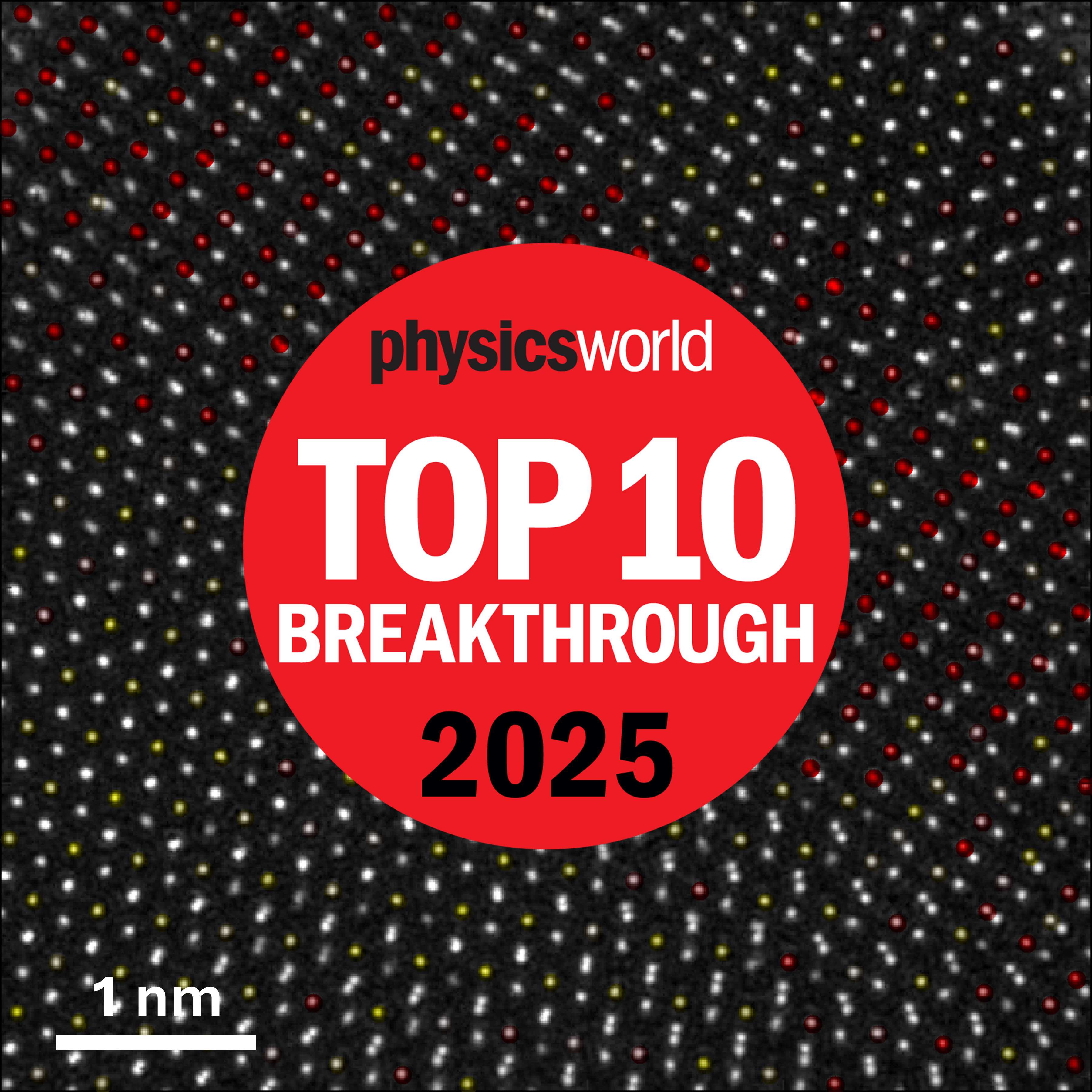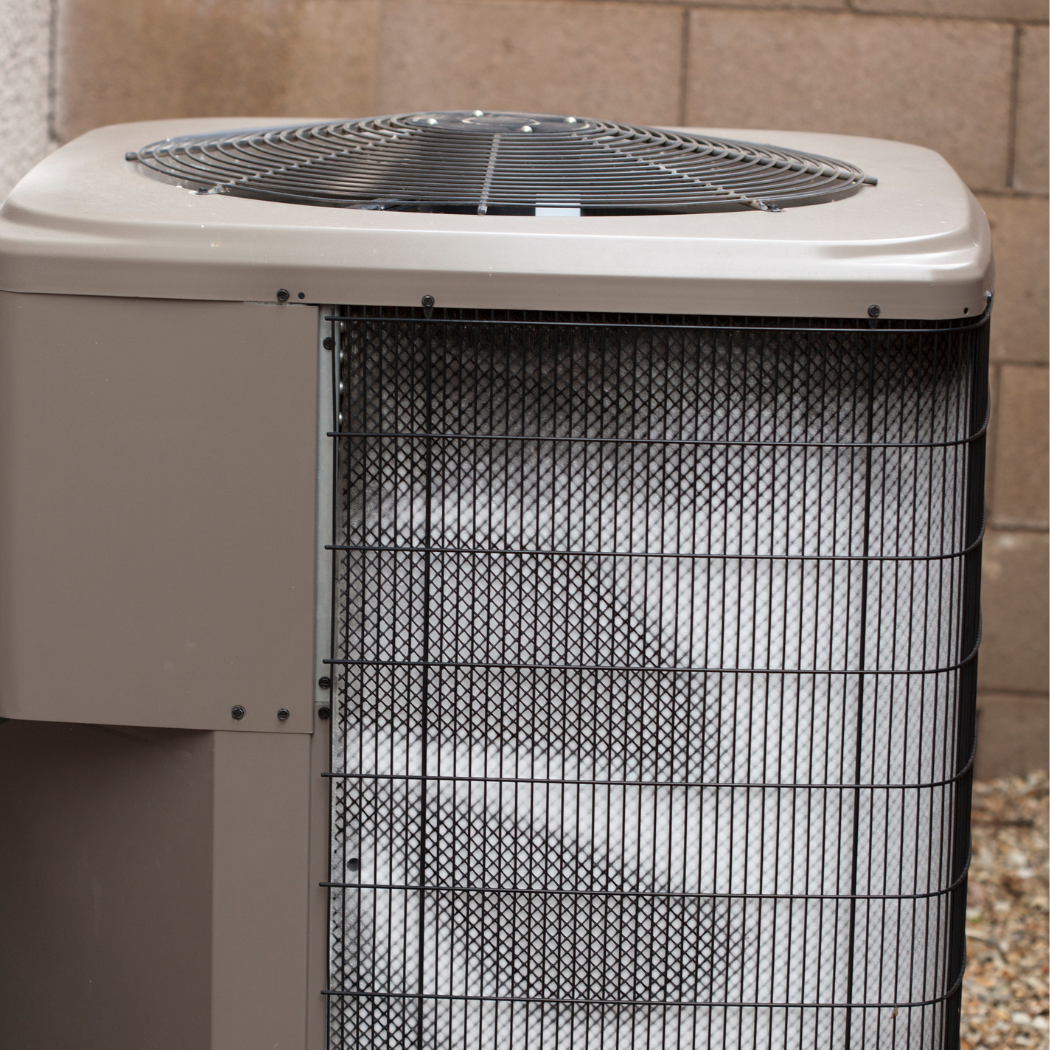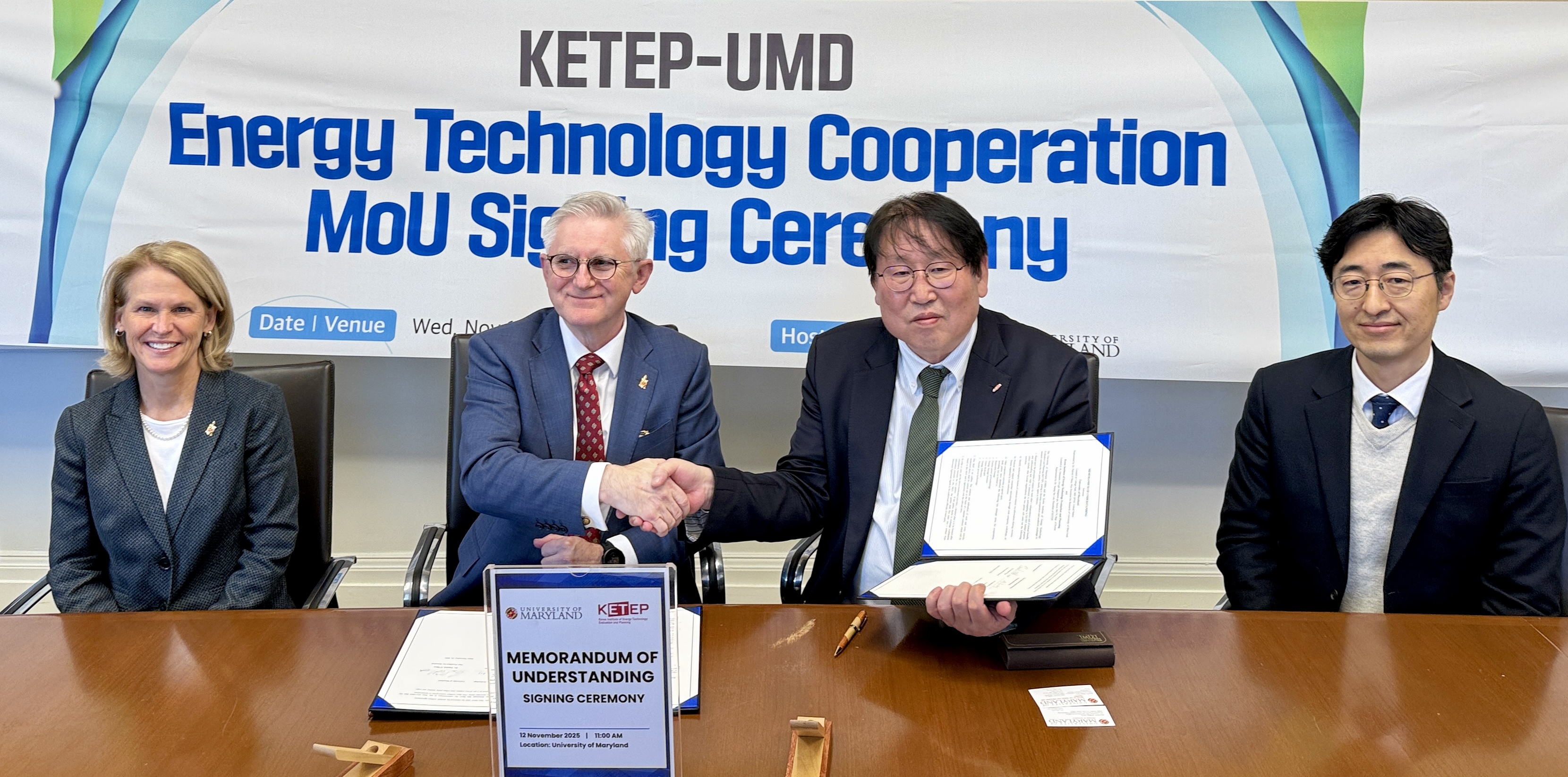News Story
Maryland Public Television Highlights UMD Research on Groundbreaking Cooling Technology
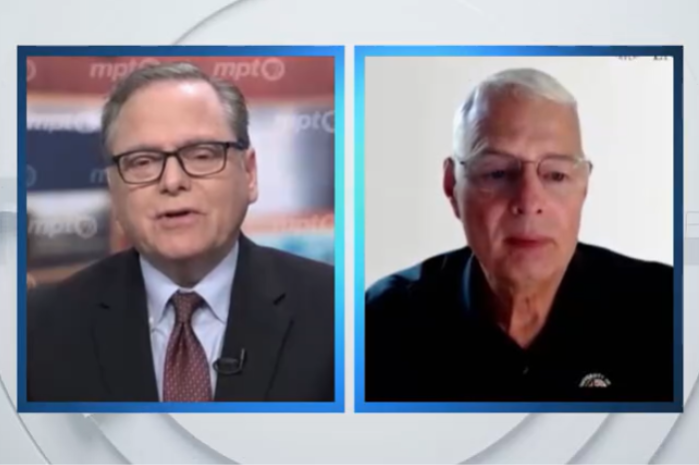
MPT interviewed CEEE Director Reinhard Radermacher about the eco-friendly elastocaloric cooling technology being developed by CEEE and the Department of Materials Science and Engineering.
Maryland Public Television (MPT) recently interviewed CEEE Director Reinhard Radermacher about a groundbreaking cooling technology that the Center for Environmental Energy Engineering is developing in collaboration with the Department of Materials Science and Engineering (MSE). Elastocaloric cooling takes advantage of a class of compressible metals called shape memory alloys, offering the possibility of efficient cooling with zero global warming impact.
“This is an entirely different concept of providing cooling or heat pumping,” Radermacher told “State Circle” anchor Jeff Salkin. “Instead of having fluid evaporate and condense, this metal when compressed gets warm . . . and when you let it cool down and then let it expand back to the original dimension, it gets cold."
Elastocaloric cooling has recently been named one of the top 10 emerging technologies to address global challenges by the World Economic Forum. Unlike vapor compression technology, which derives cooling from pressure-induced liquid to vapor phase transition of environmentally harmful hydrofluorocarbons, elastocaloric cooling is eco-friendly.
The UMD research team is led by Interim MSE Chair Ichiro Takeuchi and CEEE Co-Director Yunho Hwang, along with Radermacher. The UMD effort funded by DOE has recently led to a successful demonstration of a full elastocaloric system with a record delivered cooling power of 260 W.
Watch the full interview below, starting at 20:45.
Published August 20, 2024
